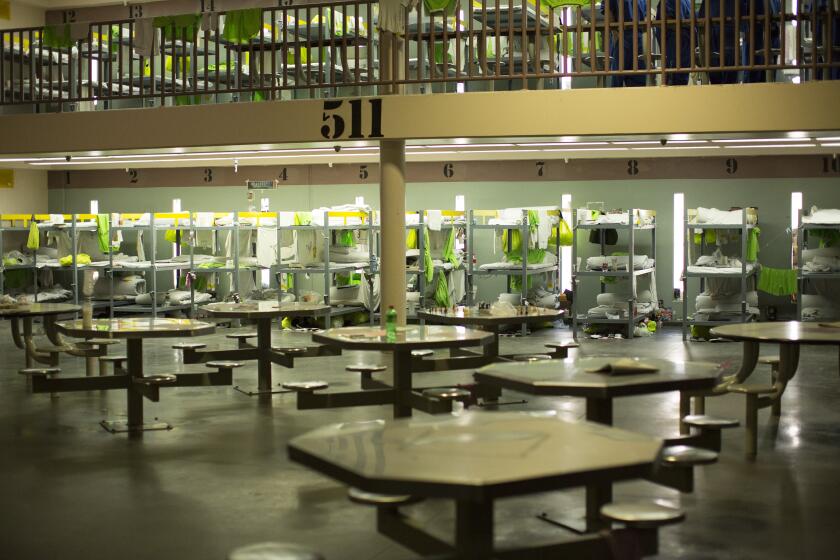Chiropractors lobby against bill ending belief exemptions for vaccines

- Share via
Reporting from Sacramento — Legislation that would do away with personal-belief exemptions for childhood vaccines, filed in response to the recent measles outbreak in California, has quickly emerged as one of this year’s most polarizing bills.
One interest jumping into the fray: chiropractors.
The California Chiropractic Assn. visited with lawmakers this week to discuss their legislative agenda this year -- and opposing the vaccine bill, by state Sens. Richard Pan (D-Sacramento) and Ben Allen (D-Los Angeles) was on the top of their list.
“Chiropractors themselves choose to become chiropractors because they like to live a more natural lifestyle, free of drugs and surgery when possible,” said Brian Stenzler, president of the 2,700-member association.
The idea of “forced medical procedures goes against a lot of chiropractors’ own personal values,” he added. “When we see our patients, the people we take care of, we like to pass those values on as well.”
The group has weighed in on the question of immunizations before. They opposed a 2012 bill, also by Pan, that mandated parents who sought an exemption for their children’s vaccination requirements submit a statement -- signed by themselves and a doctor -- saying they received information about the risks and benefits of vaccines from a healthcare provider. Gov. Jerry Brown signed it into law, but carved out an exception for those seeking a waiver due to their religious beliefs.
Public debate over vaccine requirements has risen in the wake of the largest measles outbreak in California in 15 years. The outbreak began in December and has spread to at least 157 people in eight states, Mexico and Canada, with 131 of the cases in California.
Unlike most groups opposing the bill, the chiropractors have a well-established Capitol presence: they spent more than $170,000 on lobbying and gave around $130,000 in campaign contributions in 2014.
That can be advantageous, Stenzler said, in getting meetings with lawmakers to talk about the vaccine issue. But, he said, there’s also a risk that weighing in on such a fraught issue could turn legislators against the group.
“There are definitely members of our association that are not happy at all that we took this position because they’re afraid we’re going to lose political capital on this,” said Stenzler, who practices in San Diego.
Stenzler said his group’s opposition is not meant to be construed as anti-vaccination; he declined to share his own views on immunization and stressed that there are “many chiropractors that choose to vaccinate and many that choose not to.”
Instead, the group’s talking points emphasize choice, arguing that parents should be able to determine what’s best for their children.
“We want the message to really be very clear about informed consent and about freedom of choice. We’re really encouraging—when we do speak with other parent groups—we don’t want them to get into the minutia of possible side effects.... We don’t want them talking about conspiracy theories and all these other things.”
“Other things” could include theories of links between vaccines and autism, which Stenzler went out of his way to avoid mentioning. Such theories have been thoroughly discredited by numerous scientific studies.
Asked about the chiropractors’ opposition, Shannan Martinez, spokeswoman for Pan, a pediatrician and the bill’s co-author, expressed confidence in the bill’s fortunes.
“Dr. Pan has been working legislatively for several years to get vaccination rates up, and while he makes a point to always hear out opposition, he is confident this is the right approach for the health and safety of children and he and his fellow joint authors are working hard to convince their colleagues, 23 of whom have already signed on as early co-authors,” Martinez said.
Follow @melmason for more on California government and politics.
More to Read
Sign up for Essential California
The most important California stories and recommendations in your inbox every morning.
You may occasionally receive promotional content from the Los Angeles Times.











